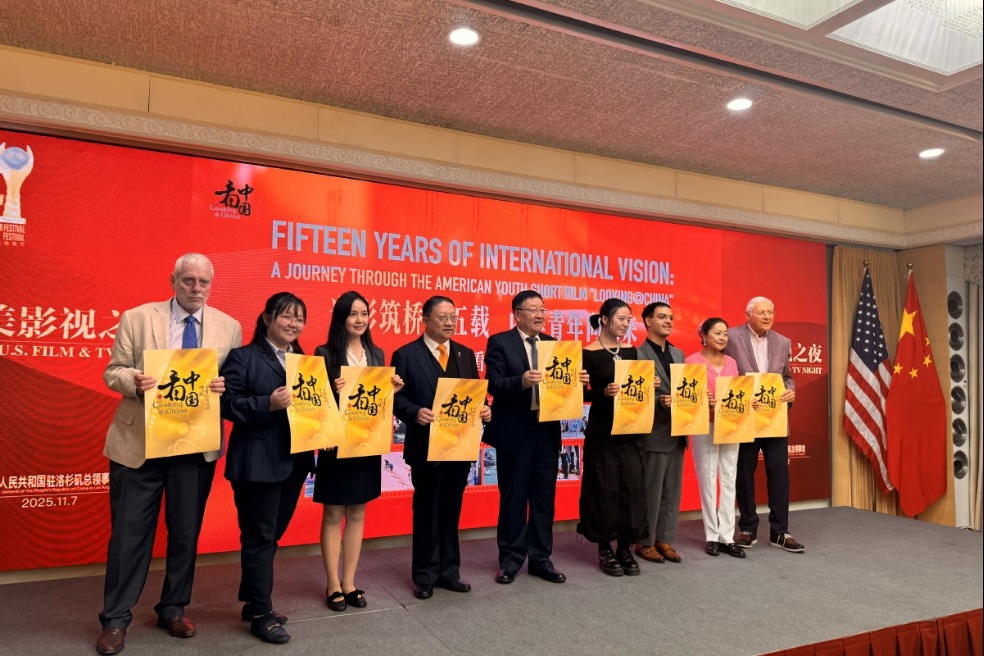Russian experts: One-China principle a cornerstone in Asia's peace
By Ren Qi | chinadaily.com.cn | Updated: 2024-01-19 23:11
Russia, like most countries in the world, strictly adheres to the one-China principle and the territorial integrity of China despite the United States and some of its allies trying to stir up geopolitical turbulence in the Asia-Pacific, Russian experts said.
Sergey Lukonin, head of the China Economics and Politics Sector at the Primakov Institute of World Economy and International Relations in the Russian Academy of Sciences, noted that the Russian Foreign Ministry issued a statement on Jan 13 that Russia acknowledges that there is only one China, and that the People's Republic of China is the sole legal government representing the whole of China and that Taiwan is an inalienable part of China.
Moreover, given the one-China principle and the 1992 Consensus, any discussions about so-called Taiwan's sovereignty, as well as activities aimed at Taipei gaining such sovereignty in any form, are completely unacceptable, he said.
Washington should stop selling weapons to Taiwan, stop holding military exercises near Taiwan, stop instigating "Taiwan independence" sentiments among Taiwan residents, and stop playing the "Taiwan card" in an attempt to contain China, Lukonin said.
"Unfortunately, the US verbally confirms its commitment to the one-China principle. But on the other hand, it specifically maintains certain tension on the Taiwan question in order to create leverage on China and strengthen its position in strategic economic and technological rivalry with the PRC," he said.
Oleg Timofeev, associate professor at the People's Friendship University of Russia, echoed Lukonin's sentiments, saying that US interference as well as the recent election of Lai Ching-te, a pro-separatist politician in Taiwan, as the new leader would certainly deepen geopolitical turbulence in the region.
Timofeev explained that Washington takes Taiwan to be an "unsinkable aircraft carrier" to maintain its regional hegemony and this poses an existential threat to China's core interests.
In Southeast Asia, the US-based National Endowment for Democracy, which is known globally as the "second CIA", and its core component, the Indonesian office of the International Republican Institute, last year offered $700,000 to fund some figures to meddle and intervene in the country's politics.
"From Washington's perspective, the importance of ensuring its followers are installed in some Asian countries cannot be underestimated," Timofeev said.
For both China and Russia, total geopolitical containment would turn into a strategic catastrophe, and Moscow understands this quite well, experts said.
On the same day the Taiwan regional election was held, the Russian Foreign Ministry issued a strong statement confirming Russia's opposition of any form of Taiwan independence, Timofeev added.
Sergey Suverov, associate professor at Financial University under the Government of Russian Federation, said the one-China principle is based on both Chinese history and modern legal documents.
"The principle is recognized by both the United States and the European Union. But for Russia, it is unconditional," he stressed.
Suverov slammed the acts by some US politicians when they visited Taiwan after the election, showing that the US verbally supported the one-China principle, but in fact supports Taiwan both economically and politically.
Still, such acts do not meet the long-term interests of the US itself, since economic cooperation with China is mutually beneficial, and normal political relations between the US and China are the foundation of a secure system of international relations, Suverov said.
"Despite the difficult situation and constant provocations by Washington and the pro-independence forces in Taiwan, I am sure that the reunification of Taiwan with the Chinese mainland is inevitable and this process against the background of Chinese modernization and the building of socialism with Chinese characteristics will take place peacefully and will serve as a solid foundation for security, stability and prosperity not only in the Asia-Pacific region, but also throughout the world," Lukonin said.
























